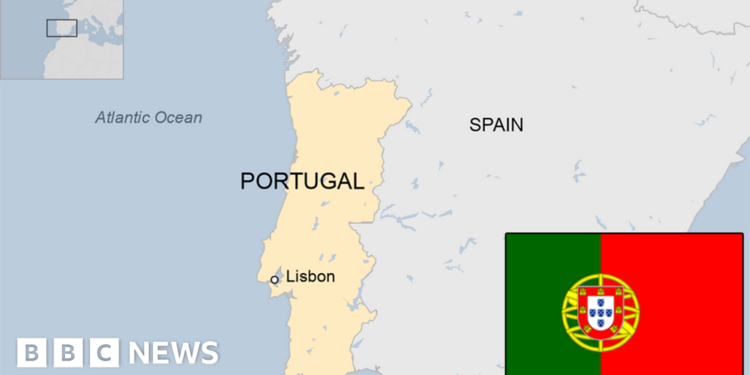Some key dates in Portugal’s history:
1139 – Afonso Henriques, Count of Portugal defeats the Moors at the Battle of Ourique and is proclaimed independent Portugal’s first king.
1249 – The Reconquista ends with the capture of the Algarve and the expulsion of the last Moorish settlements on the southern coast.
15th Century – Portugal spearheads European maritime discoveries and expansion.
1494 – Treaty of Tordesillas divides the newly discovered lands outside Europe between Spain and Portugal along a meridian halfway between Cuba and Hispaniola in the Caribbean, and the Cape Verde islands off the west coast of Africa.
1498 – Vasco da Gama becomes first European to reach India by sea.
1500 – Pedro Álvares Cabral claims Brazil for Portugal.
1580-1640 – The Iberian Union between the Crowns of Castile and Aragon and Kingdom of Portugal brings the entire Iberian Peninsula, as well as Portuguese and Spanish overseas possessions, under the Spanish Habsburg monarchs Philip II, Philip III, and Philip IV.
1640-1668 – Portuguese Restoration War sees Portugal regain its independence.
1755 – Lisbon earthquake devastates Portugal with an estimated magnitude between 8.5 and 9.0. Between 12,000-50,000 people are killed.
1807-1811 – British-Portuguese forces successfully fight off the French invasion of Portugal in the Peninsular War.
1825 – Brazil becomes independent.
1834 – Constitutional monarchy established.
1908 – King Carlos and eldest son assassinated in Lisbon. Second son Manuel becomes king.
1910 – King Manuel II abdicates amid revolution; Portugal proclaimed a republic.
1911 – New constitution separates church from state. Manuel Jose de Arriaga elected first president of republic.
1916-18 – Portugal fights World War One on Allied side.
1926 – Military coup. General Antonio de Fragoso Carmona becomes president.
1928 – Carmona appoints Antonio de Oliveira Salazar minister of finance.
1932 – Salazar becomes prime minister, a post he will retain for 36 years, establishing authoritarian “Estado Novo” (New State) political system.
1936 – Salazar backs General Franco’s nationalists in the Spanish Civil War.
1939-45 – Portugal maintains official neutrality during World War Two but allows UK to use air bases in Azores.
1949 – Portugal becomes founding member of Nato.
1955 – Portugal joins United Nations.
1961-1974 – Portugal fights long colonial wars in its overseas colonies of Angola, Mozambique and Guinea-Bissau against armed independence movements.
1968 – Antonio Salazar dismissed from premiership after stroke; dies in 1970.
1974 – A near-bloodless military coup sparks a mass movement of civil unrest, paving the way for democracy. The 25 April coup becomes known as the Carnation Revolution.
1974-75 – Independence for Portuguese colonies of Guinea-Bissau, Mozambique, Cape Verde Islands, Sao Tome and Principe, and Angola.
1980 – Prime Minister Francisco de Sá Carneiro and Defence Minister Adelino Amaro da Costa are killed in a plane crash. Initially believed to be an accident, a 2004 parliamentary inquiry concludes the aircraft was brought down by a bomb, external, linked to Portuguese arms sales to Iran.
1982 – Military Council of the Revolution abolished, civilian government formally restored.
1986 – Portugal becomes member of EEC (later EU). Mario Soares elected president.
1999 – Portuguese territory of Macau handed over to China.
2016 – Former prime minister Antonio Guterres appointed UN Secretary General.
2017 – Portugal drops complaint to the EU over Spanish plans to build a nuclear waste storage facility which environmentalists fear could affect the River Tagus, after Spain agrees to share environmental information.
2020 – President Rebelo de Sousa asks parliament to authorize a state of emergency to combat Covid-19, the first nationwide state of emergency since becoming a democracy in 1974.
Source link : https://www.bbc.com/news/world-europe-17758217
Author :
Publish date : 2024-03-22 07:00:00
Copyright for syndicated content belongs to the linked Source.


